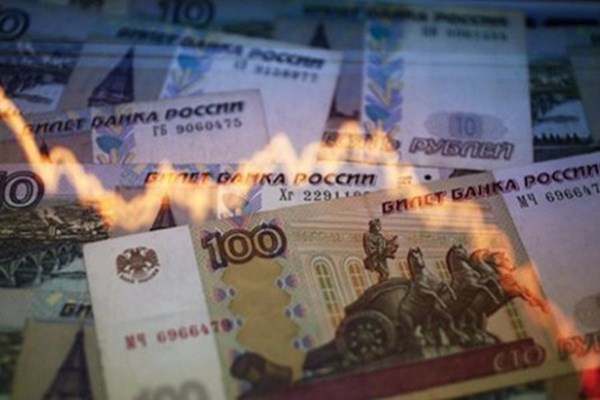Kremlin accuses the U.S. of accelerating world inflation
The amount of anti-crisis support for the economy, introduced by the US authorities amid the pandemic, was excessive, said the former head of the Russian Ministry of Economic development, and now assistant to the Russian President Maxim Oreshkin.
“Pumping trillions of dollars into the system using the "printing press" of the Federal Reserve and the American budget led to an accelerating of inflation worldwide, “ he stated at the plenary session of the Moscow Financial Forum.
"The United States has had a budget deficit of 15% of GDP for two years in a row" and "it definitely went too far with the size of incentives, resulting in a global wave of inflation," said Oreshkin.
"The macroeconomic response to the crisis must be commensurate with the scale of economic problems. If you have the deepest recession since World War II, then the response should be equal in size," said Oreshkin.
In Russia, according to Oreshkin, the problem of excessive support for the economy was avoided. The authorities found "the optimal volume and size of the stimulus and its structure, which made it possible to recover and, in fact, restore the economy in a little more than a year," he said.
According to the IMF, the total package of anti-crisis measures in Russia amounted to only 3.3% of GDP, while injections into the world economy as a whole reached 20% of GDP.
in 2020, additional expenditures to support the population and business in Russia were even less - 1.8% of GDP.
Of this amount, 0.8% of GDP went to income subsidies, 0.7% of GDP - to help business and 0.3% of GDP - to the budgets of the regions.
At the same time, Russia became one of the few countries that raised taxes during the crisis. In particular, tax on high income earners increased to 15%, and a tax on income from personal bank deposits was introduced.
The acceleration of world inflation, provoked by monetary emission, is the reason for the increased price growth in Russia, said Oreshkin's successor at the Ministry of Economic Development, Maxim Reshetnikov, at the same forum.
"In August, unfortunately, the price index of non-food items increased and surpassed the price index of food products, so we must understand that this is a single process that previously began in the food group, then turned into non-food," he stated.
According to Russian Federal State Statistics Service, over the past 12 months, the growth rate of the consumer price index has almost tripled and reached 6.8%, the maximum since August 2016.
"This is a natural reaction of the world economy to active monetary emission, to budget deficits, to a long period of soft monetary policy. Unfortunately, this is a process that is definitely not finished. Because even in the food segment, we see that in August the price increase for both wheat and sunflower oil continued," Reshetnikov warned.
He added that the Russian authorities cannot completely neutralize the global price increase due to duties and other restrictive measures.
